BU sees shift in reports of rape, stalking
In 2021, reports of rape reached a eight-year high as other statistics plateaued.
 Hallie Milligan news intern
Hallie Milligan news intern
Binghamton University’s 2022 Security and Fire Report reflects a wave of crime statistics that have shifted these past few years, including stalking and rape.
The 2022 report covers reported crime incidents on and adjacent to campus in 2019, 2020 — the year BU was largely under remote learning — and 2021. In 2019, 13 rape incidents were reported, while six were reported in 2020 and 21 in 2021 — which is BU’s highest reported number of rape incidents since 2014, according to pressconnects. Reported incidents of dating violence have declined since 2019, with 19 incidents reported in 2019, 12 in 2020 and 14 in 2021. Reported incidents of stalking have also declined since 2019.
The Annual Security and Fire Report, filed yearly by the University’s Clery Act Coordinator and included in the Student Handbook, is a collection of campus reports investigating crime and fire safety procedures. The report is required by the Jeanne Clery Disclosure of Campus Security Policy and Campus Crime Statistics Act of 1990, more commonly referred to as the Clery Act.
According to Andrew Baker, BU’s senior compliance officer and Title IX coordinator, it is likely the number of reported incidents is less than the amount that actually occurs.
BC Transit introduces new I.D. system
New identification scanners and payment processors have been added to buses.
Shemesh news contributor
Broome County (BC) Transit is updating its fare system with new technology.
In the wake of COVID-19, BC Transit has modernized payment options on their buses as a part of a push for higher operational efficiency. Students have been allowed to board BC Transit buses for free for over 20 years, and while this will not change, new features are going to be applied to the buses, including updated BU ID scanners and advanced payment processors, according to Gregory Kilmer, the Broome County Commissioner.
Currently, BC Transit services approximately 1.6 million people each year in Binghamton and the surrounding areas, with major hubs located at the Binghamton University Union and BC Junction downtown, according to Kilmer. Over 40 percent of those riders are associated with BU.
Kilmer, who helped to oversee the updating process, explained that the purpose of the upgraded ID scanners is to replace the “aging and basic fare system” with a “future-proof” system that can take multiple forms of payment.
BSU celebrates Black Solidarity Day
The event facilitated both discussions and demonstrations on Black solidarity.
Blessin
McFarlane news intern
This past Monday, Binghamton University’s Black Student Union (BSU) held a march and discussion in celebration of Black Solidarity Day.
In celebration of the holiday, BSU held a collaborative event — “Lift Every Voice: Thriving in Black Joy” — on Nov. 7 in the Mandela Room. Attendees were asked to wear all black, as the theme of the event was unification, and the chairs were all organized into one large circle to aid in the feeling of connectedness, according to Taylor Chance, BSU’s political correspondent and a sophomore majoring in biochemistry.
The event was held from 6 p.m. to 9 p.m. and began with several of BU’s Black organizations tabling and promoting their clubs’ missions.
“Into The Woods” reshapes classic fairytales
The theatre department put their all into their version of the Sondheim classic.
Lorena Maggiore arts & culture contributor
“Into The Woods,” a performance by BU’s theatre department, opened at the Watters Theater the past two weeks.
“Into The Woods” is based on a libretto by James Lapine, with score and lyrics by Steven Sondheim. It is a retelling of classic Grimm brothers
fairy tales — centered around “Jack and the Beanstalk,” “Rapunzel,” “Cinderella” and “Little Red Riding Hood.” In Act I, Cinderella, Jack, Little Red Riding Hood and the Baker and Baker’s wife are portrayed following orders, making wishes and pursuing their wants. In Act II, characters deal with their lives after their wishes come true. Sondheim and Lapine convey that “Happily Ever After” does not always meet expectations.
Tommy Iafrate, an associate professor and director of musical theater at BU, explained the process
behind preparing for “Into The Woods.” Iafrate said the theatre department was looking into the kind of subgenre of the musical theater of which Sondheim is part of, and was left deciding between “Sweeney Todd,” “Sunday in the Park with George” and “Into The Woods.”
The theatre department decided to put on “Into The Woods.”
“We ended up going with ‘Into The Woods’ because it offers opportunities for so many different cast members,” Iafrate said. “It’s not the same sort of tent-pole type of production that requires a Sweeney
and a Mrs. Lovett and then other characters that are more on the periphery.”
Iafrate said that within the eight years of his employment at BU, this was his first time seeing student designers taking on positions for stage scenery, costumes and lighting.
Volleyball wins first regular season title
Bearcats sweep Bryant, earn No. 1 seed and will host AE tournament next weekend.
Johnny Yang Sports intern
With the America East (AE) regular season title on the line, the Binghamton volleyball team traveled to Smithfield, Rhode Island on Sunday afternoon to take on Bryant in its final regular season match. After sweeping Bryant a month ago in its first matchup, BU replicated its success — winning in three sets once again to earn the program’s first AE regular season title — and will host the conference tournament next weekend.
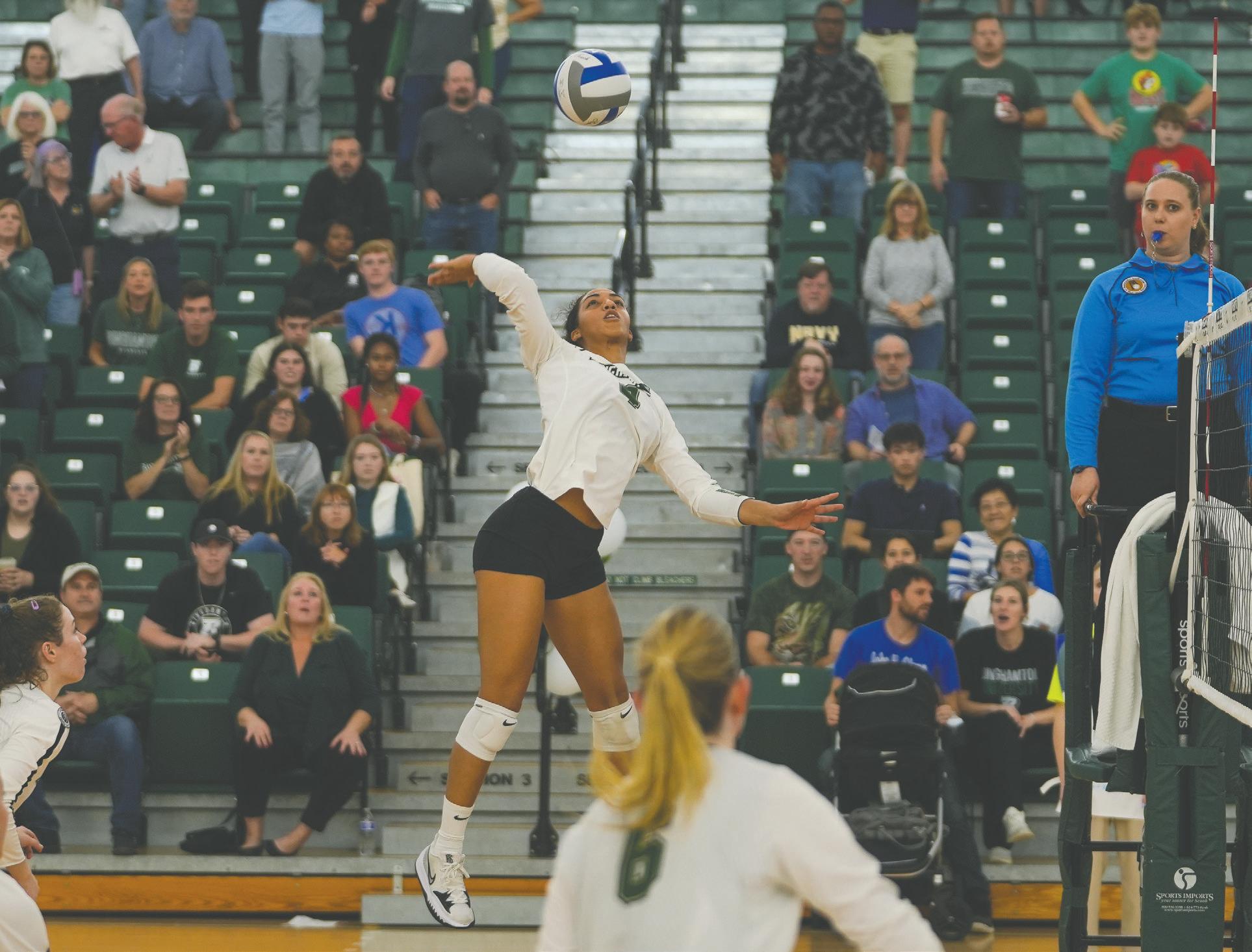
“We’ve talked about championships, we’ve talked about being a championship program, building this program back up to where I knew it could be at,” said Binghamton head coach Allie Yaeger. “It’s so exciting and it’s very surreal for me and for the girls. In all the years that I’ve been coaching and my four years of playing, I’ve never won a regular season championship … I hope we can continue this momentum and bring it into next weekend.”
ARTS & CULTURE SPORTS
OPINIONS
SEE PAGE 6 SEE PAGE 8 SEE PAGE 8
Binghamton Center for Writers hosts Iranian-American poet,
BU club aims to support those with special needs,
Contributing Columnist Julie Ha discusses the harms of gender performativity.
Men’s basketball clinches victory over Marist,
SEE PAGE 6 SEE PAGE 7
Men’s soccer defeated in America East semifinals,
Tuesday, November 15, 2022 | Vol. CI, Issues 20 & 21 | Binghamton University | bupipedream.com
The Free Word on Campus Since 1946
see bsu page 3 see transit page 3
page 6 see soccer page 8
see theatre
see report page 3
Adam
mason brody-lewis assistant photo editor
Freshman outside hitter Giulia Bonifacio got 13 kills in Binghamton’s sweep over Bryant on Sunday.
em o’brien design intern
In 2021, Binghamton University saw an increase in reported rape incidents, with other statistics plateauing.
Attorney General



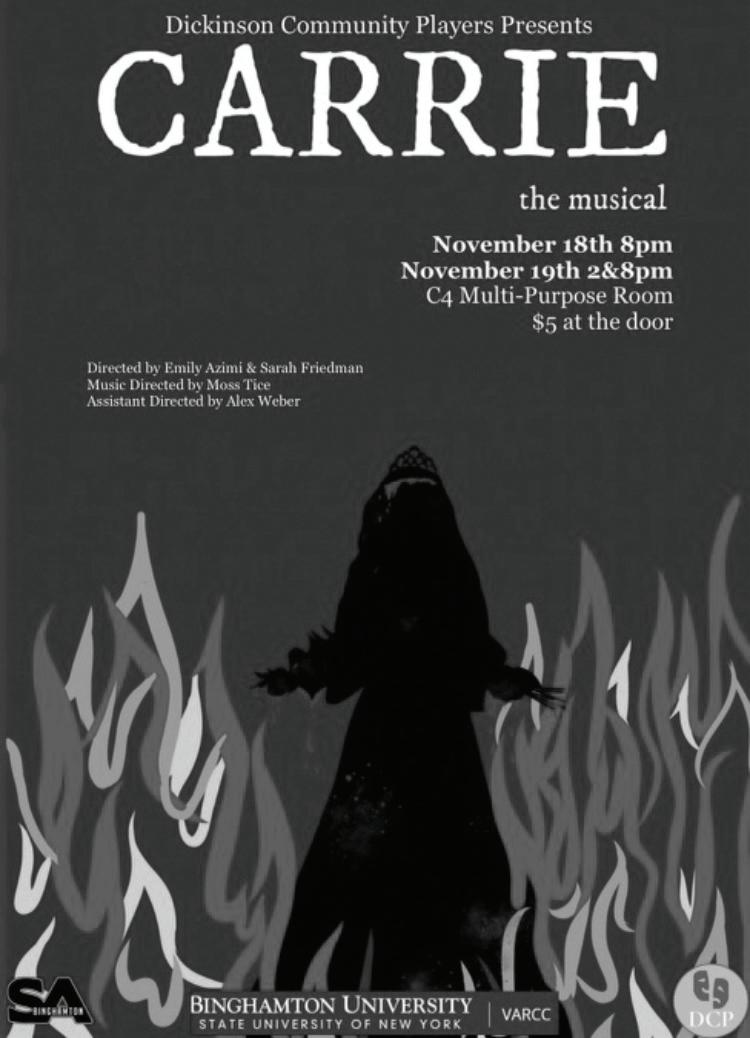

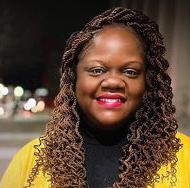






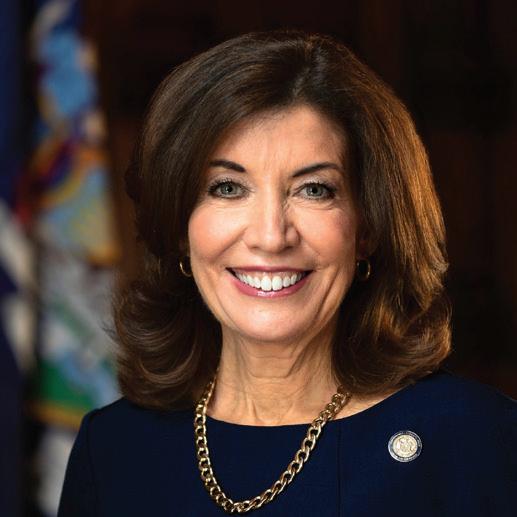
Monday, April 3, 2017 Thursday, September 28, 2017 Monday, October 2, 2017 Thursday, October 5, 2017 PAGE II FALL 2022 BUSINESS MANAGER* Lukas Ladekarl business@bupipedream.com MANAGING EDITOR Harry Karpen manager@bupipedream.com Editor-in-Chief* Hamza Khan editor@bupipedream.com NEWS EDITOR Jacob Knipes news@bupipedream.com ASST NEWS EDITORS Melissa Cosovic Celia Woodruff ASST. ARTS & CULTURE EDITORS Jamie Nguyen Eli Engler SPORTS EDITOR* Jack Oh sports@bupipedream.com FUN EDITOR Peter Proscia fun@bupipedream.com DESIGN MANAGER Bella Daidone design@bupipedream.com DESIGN ASSISTANTS Brianna Crowther Sonia Leyvi Alexa Valadez PHOTOGRAPHY EDITOR* Michael Golann photo@bupipedream.com COPY DESK CHIEF Lia Richter copy@bupipedream.com TECHNOLOGY MANAGER Steven Yeung tech@bupipedream.com ASST. TECHNOLOGY MANAGER Leora Dallas ASST. COPY DESK CHIEF Allison Peteka ASST. SPORTS EDITORS Michael Carbone Ian Mills ARTS & CULTURE EDITOR* Sam Lillianthal arts@bupipedream.com OPINIONS EDITOR Doris Turkel opinions@bupipedream.com ASST PHOTOGRAPHY EDITOR Mason Brody-Lewis ASST. OPINIONS EDITOR Desmond Keuper ASST. BUSINESS MANAGER Adam Perez businessassistant@bupipedream.com ADDRESS: University Union WB03 4400 Vestal Parkway E. Binghamton, N.Y. 13902 P 607-777-2515 WEB bupipedream.com stabilizing:pinochole schedule:destabilizing Pipe Dream is published by the Pipe Dream Executive Board, which has sole and final discretion over the newspaper’s content and personnel. Positions seated on the executive board are denoted by an asterisk. Pipe Dream is published online Mondays and Thursdays while classes are in session during the fall and spring semesters, except during finals weeks and academic breaks. The content on the Opinions page with bylines represent the views of those authors and do not necessarily represent the views of the Pipe Dream Executive Board. The content of advertisements do not necessarily reflect the views of the Pipe Dream Executive Board. We reserve the right to reject ads for any reason. All letters submitted for publication must include the author's name, year and major. Please limit letters to the editor to 400 words and guest columns to 750 words. Pipe Dream reserves the right to edit submissions, and does not guarantee publication. All submissions become property of Pipe Dream. Guest column submissions may be emailed to the opinions editor at opinions@bupipedream.com, and all letters to the editor may be sent to editor@bupipedream. Tuesday, November 15, 2022
Kathy Hochul (D): 52.9%, 3,025,321 Lee Zeldin (R): 47.1%, 2,698,315 2022 Midterm Election Results Comptroller Thomas DiNapoli (D): 57%, 3,187,492 Paul Rodriguez (R): 43%, 2,405,719
Governor
Letitia James (D): 54.3%, 3,053,107 Michael Henry (R): 45.7%, 2,570,683
U.S. Senate, New York Charles Schumer (D): 56.4%, 3,193,642 Joe Pinion (R): 43.2%, 2,443,747 Diane Sare: 0.5%, 25,849 U.S. House District 19 Marcus Molinaro (R): 51.1%, 142,923 Josh Riley (D): 48.9%, 136,789 U.S. House District 23 Nick Langworthy (R): 65%, 189,691 Max Della Pia (D): 35%, 102,215 Federal State Assembly District 123 Donna Lupardo (D): 55%, 21,653 Sophia Resciniti (R): 45%, 17,715 State Senate District 52 Lea Webb (D): 50.7%, 51,849 Richard David (R): 49.3%, 50,399 Broome County Sheriff Fred Akshar (R): 62.70%, 41,410 Kate Newcomb (D): 37.19%, 24,562 Local Below are the election results in several key local and U.S. races this election cycle. Votes accurate as of Nov. 14
New York State
Reports of rape increase in 2021, other statistics decline
Baker said the University provides annual training to its staff in an effort to encourage victims to report these kinds of incidents.
“Historically, victims underreport what has happened to them,” Baker wrote in an email. “The University has worked to eliminate barriers to reporting and train students and staff to respond in a manner that supports victims. These efforts include annual training for all Residential Life staff and the establishment of the [Violence, Abuse and Rape Crisis Center] in Old Johnson Hall, among other ongoing educational and training efforts.”
In regard to stalking incidents, the 2022 Security and Fire Report recorded 57 incidents in 2019, 47 in 2020 and 47 again in 2021.
Halle Nelson, the communications specialist for the National Sexual Violence Resource Center (NSVRC), a national resource that educates about sexual violence and advocates for victims of sexual assault, said there is a correlation between stalking and sexual misconduct.
“As far as stalking goes, there definitely has been overlap between it and sexual violence,” Nelson wrote in an email. “Sexual violence is most often perpetrated by someone the victim knows, and stalking is often committed by a current or former intimate partner.”
The NSVRC website directs anyone in need of immediate service to contact the Rape, Abuse and Incest National Network (RAINN), a national hotline for sexual assault victims which can be reached 24/7 at their online chat service or at 1-800-656-4673 for direction to a local rape crisis center.
Jacey Ruisi, a sophomore double-majoring in English and psychology, said she believes
the statistics are likely a result of victims feeling hesitant to seek help or file a report. Ruisi further stressed the importance of mental health support for victims.
“I am not surprised by these stats, and I feel like most people probably don’t even report,” Ruisi said. “I think that if stats are higher one year, it doesn’t necessarily mean there were more incidents, it just means there were more victims who spoke up. I think that we just need to emphasize mental health support more, and when that happens stats may just go up again anyway because people will be educated more on boundaries, so people will be even more validated in speaking up.”
Gianna Barbero, a freshman majoring in biomedical engineering, said she was surprised by the increasing rape statistics and believes a yearly rape prevention course should be implemented to encourage discussion of incidents.
“I am surprised by the change from 2020 to 2021, and I think there needs to be a more open atmosphere to talk about [rape],” Barbero said. “As a freshman, it was mandatory to take a rape prevention [course]. I think everyone should take that every year. There needs to be a better atmosphere for people to feel comfortable talking about it and reporting it. I’m not entirely sure if anything could make [the statistics] decrease.”
In the event of an emergency, the University encourages students to contact University Police at 911. To report an incident to the Title IX office, students can contact Baker at 607-777-2486 or file an anonymous report through the Title IX website.
Black Student Union celebrates Black Solidarity Day
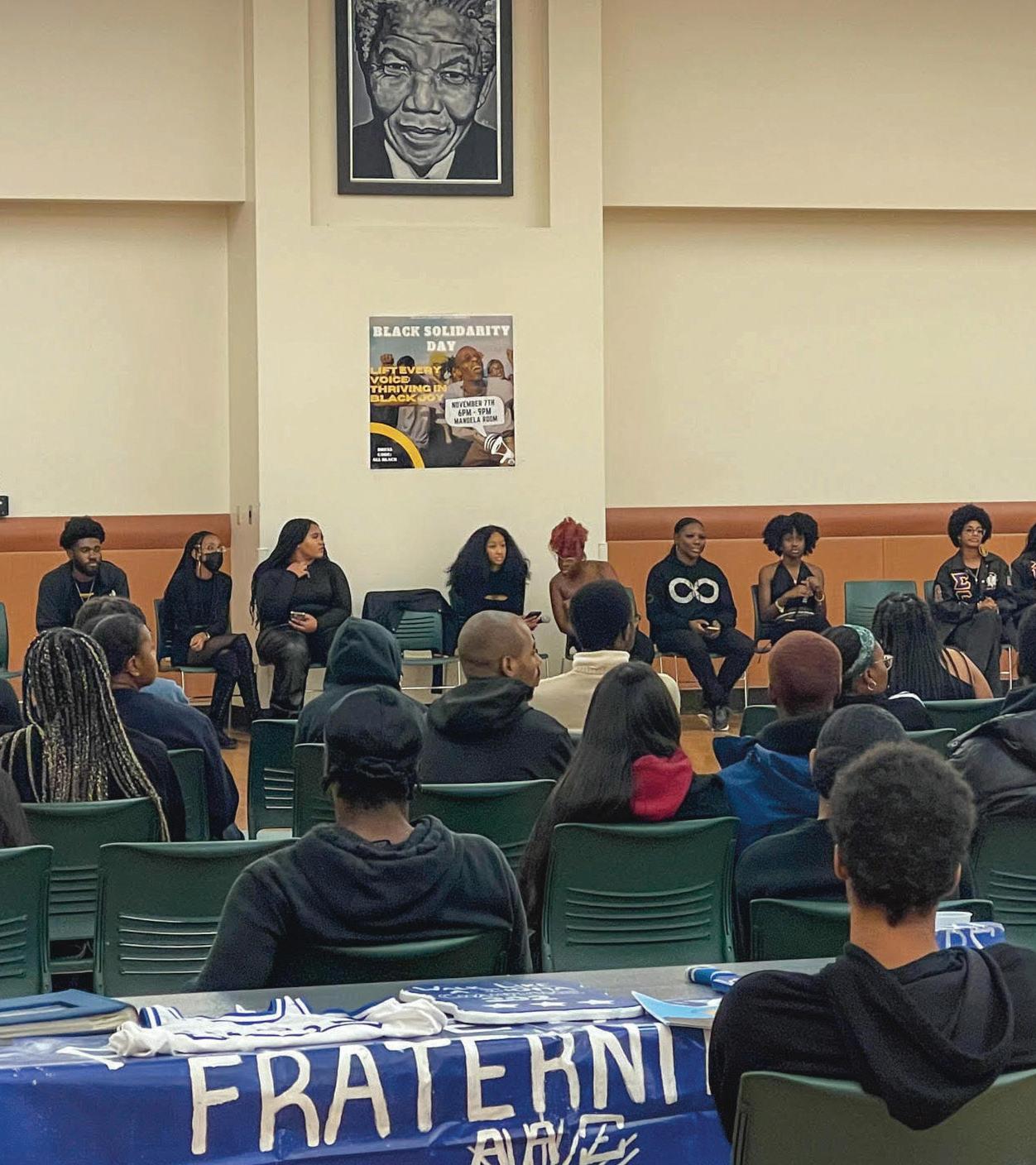
The event’s program then commenced, with several performances followed by a discussion.
During the discussion portion, Chance detailed the importance of observing Black Solidarity Day, which she described as a day for “Black people to emphasize their political and economical strength.”
“It is a day meant to also honor our Black heroes and remember our martyrs due to the harms of police brutality,” Chance wrote in an email. “Black Solidarity Day (BSD) was strategically put on the Monday before Election day, to remind Black people of the power we hold together and that our voices matter. This is important to increase Black voters because oftentimes Black people feel like their vote is not important and does not have any effect on elections. BSD is a day to counteract that notion and assert that our voices matter and that it is important for them to be heard.”
Black Solidarity Day was established by activist and educator Carlos Russell in 1969 to highlight racial imbalances and social discrimination toward Black people in America.
On this day, Russell wanted Black people to take a break from all commercial practices — including work and school — in order to emphasize Black people’s influence and contributions to society. It is now observed on the first Monday of November each year around the country.
Chance and other E-Board members then opened the floor to attendees, asking questions regarding their views on Black joy, stereotypes, self-care and more. Saniah Antoine, a sophomore majoring in psychology, described what she feels Black joy is — and why it can be weaponized.
”Black joy to me is the line dances we all grew up to like the cupid shuffle,” Antoine wrote in an email. “It’s the references that only we understand either from hearing our parents say it or [in] Black TV shows and movies. It’s these things that bring us together that define
Black joy for me. It’s important that we come together to remind each other that we are not alone. Regardless of the trauma placed upon us, we should never forget to keep our joy in our lives and hearts.”
Solidarity was a focus of the event, and many spoke about why solidarity and moments of togetherness with other Black students on campus were important to them. Ceian Thomas, a senior majoring in mathematics, was one of these students.

”Solidarity among the Black students at [BU] is very important because it allows these individuals potential outlets for Black folks to share their trials and tribulations with one another, and through that discourse, find something in common among people who
really look like them,” Thomas wrote in an email. ”I feel that college makes it a priority that everyone must focus on themselves, and as a result, that prevents one from creating longlasting relationships, especially with others that not only look like me, but go through similar struggles to me.”

The event then closed with a march around campus. All attendees held a black flag with the name of a Black person who died at the hands of someone who was not a Black, Indigenous and people of color (BIPOC) individual. The Spine was also decorated with black flags, which represented the event’s Black Solidarity Day memorial.
The group played music during the walk and took breaks to recite chants such as “Black Jubilation is our creation,”
BC Transit introduces new I.D. system
transitfrom page 1
“The process took about 1.5 years in the planning, funding, bidding and procurement,” Kilmer wrote in an email. “The implementation phase, which includes installation in 70 buses, a ticket vending machine, a mobile app and a picture ID system, took about [one] year. The new system accepts cash, traditional magnetic strip bus passes, ‘tap and go’ proximity cards and reads smartphones using a mobile app. The mobile app has proven to be the most popular method of payment.”
BC Transit worked with BU, as well as SUNY Broome, to update the ID scanners that are used by students that take the buses. The new technology will help to gather more accurate data about ridership, according to Kilmer, and will disallow people from using expired ID’s.
“The system will provide highly accurate metrics allowing us to study ridership trends and overall use of BC Transit by time and location,” Kilmer wrote. “This data allows us to fine-tune our service offerings to meet new and shifting demand. The new fare system will also help reduce fraud since individuals with inactive ID’s will no longer be able to ride for free.”
Hanks Liu, a sophomore majoring in business administration, takes BC Transit a few times per week. Liu questioned the impact the new scanners will have.
“I personally never scan my ID, and the driver doesn’t check,” Liu said. “I prefer the [University Off Campus College Transport (OCCT)] buses, since [BU] students are the only passengers. The BC bus is almost never on time, so I don’t have much confidence
“Black Joy Matters,” “Black Lives Matter,” “LGBT, We demand equality,” “No Justice No Peace” and more.
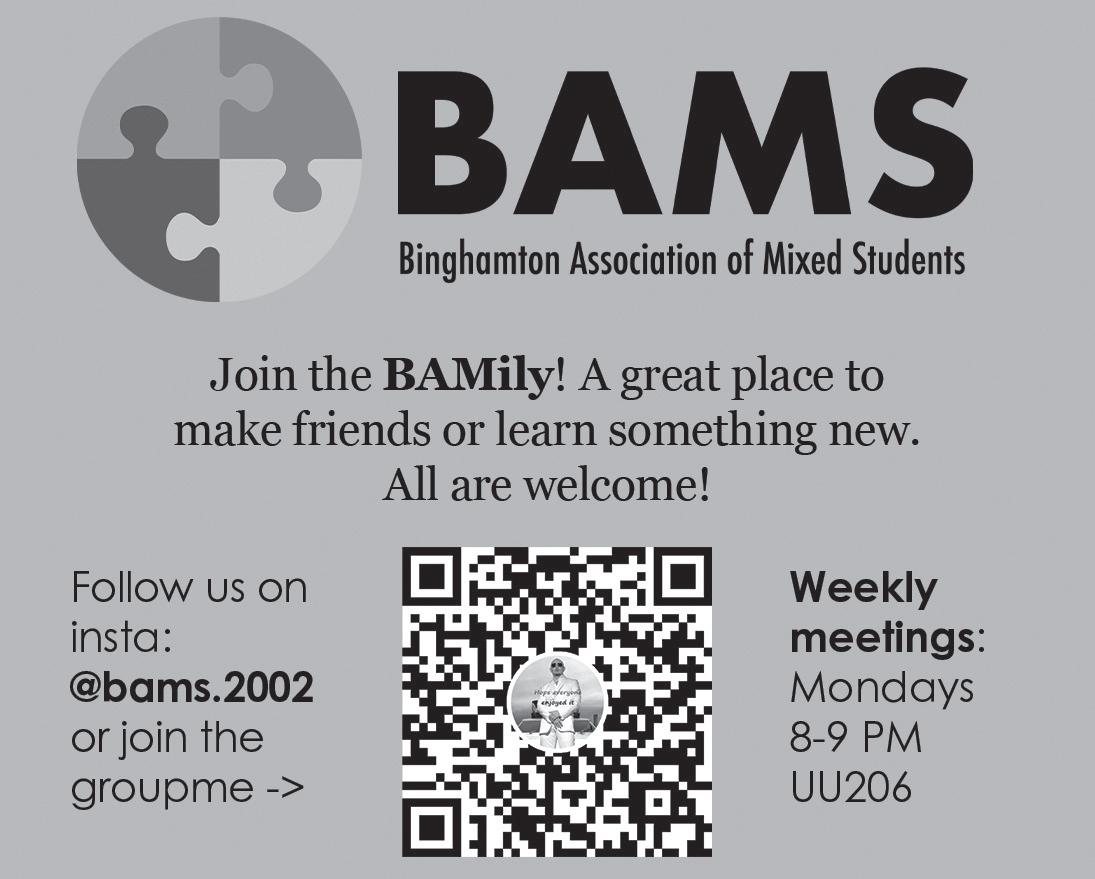
BSU holds several events throughout the year to promote Black unity on campus, according to Chance — including their fashion and hair show, the Black Museum and programming for Black History Month.
“One of the best ways we cultivate solidarity is by having our BSU Lounge open to Black students any time they need to do homework, take a nap or congregate,” Chance wrote in an email. “Located in the [University] Union [Room B006], this lounge is a safe space, and it’s my favorite way we build community and solidarity.”
toward data collection.”
BU students can also take OCCT buses, but they offer limited service as compared with BC Transit. However, OCCT is exclusively for BU students and staff, and many OCCT drivers are students themselves.

Matthew Huang, a junior majoring in accounting, moved off campus this year and uses BC Transit often.
Huang suggested further improvements to the system based on the transit system technology used in New York City.
“I would like to see the time of arrival tracked through Google Maps, similar to how the MTA [in NYC] gives exact times for train arrivals,” Huang said. “Right now, I can see the scheduled arrivals, but with no live tracking this isn’t always helpful.”
bupipedream.com | November 8, 2022 NEWS 3
report from page 1
divya gottiparthy contributing photographer The program included a panel discussion where attendees discussed solidarity and other topics related to their experiences.
jocelyn phipps staff photographer
bsu from page 1
BC Transit provides students with direct transportation to popular locations and throughout local neighborhoods.
BU holds ceremony honoring Veterans Day
president for Student Affairs and Dean of Students, were both speakers at the event.
Stenger began the event by discussing the importance of actively celebrating Veterans Day, sharing that the University was originally established to assist veterans.
history, and Luca Giardina, a Cornell University army ROTC cadet command sergeant major and a senior majoring in environmental science, gave a marching demonstration at the event to honor those who have served.
Binghamton University recently honored veterans with a ceremony and marching demonstration.
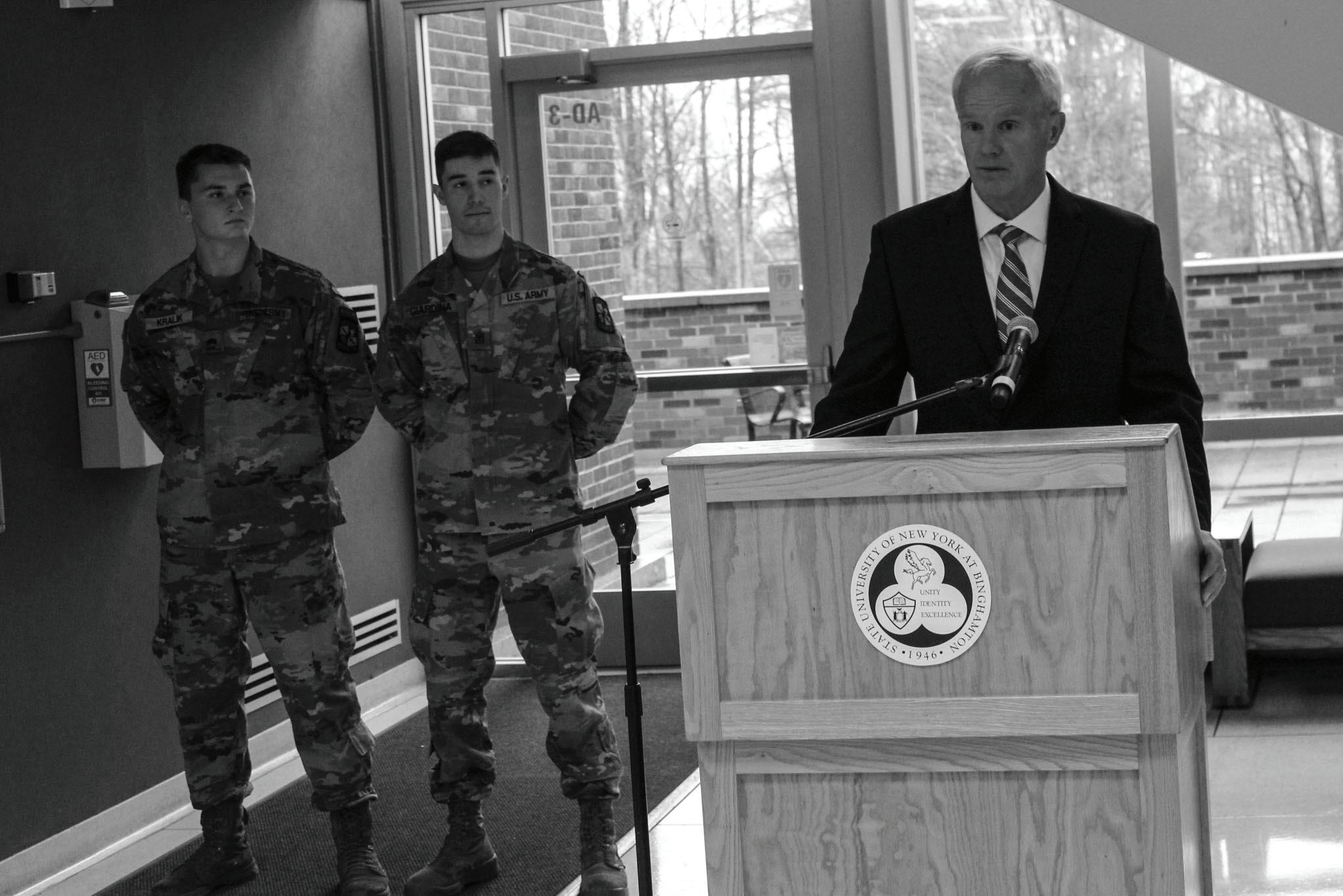
This past Veterans Day, BU held a ceremony in the Couper Administration Building honoring American veterans, a celebratory tradition that has taken place at BU for several decades. The event was held through the cooperation of a variety of administrative offices and departments on campus, some of which include the President’s Office, the Reserve Officers’ Training Corps (ROTC) and the New York State University Police Department. While it was initially planned for two ROTC cadets to raise the American flag, the event was moved indoors due to rain. Poppy flower pins and wristbands that read “never forget those who served” were offered at the end of the event.
BU President Harvey Stenger, along with Randall Edouard, assistant vice
“To recognize Veterans Day is not just something we think about doing, it’s something we’re obligated to do,” Stenger said. “[BU] was started 76 years ago as an answer to returning GIs from World War II, to get them a higher education that they would need to have to be successful in the growing economy.”
Stenger paid tribute to ROTC cadets and reminded attendees of the importance of showing gratitude toward those who have served.


“Whether it’s an aunt or an uncle or your parents, make sure you get that thank you in,” Stenger said. “I hope people will remember that as we prepare our world for more conflict, it doesn’t seem like it ever wants to end, but we are so lucky that we have future officers like our ROTC cadets who will defend our freedoms.”
Two cadets from the BU ROTC program, Jack Kralik, a sophomore majoring in
Giardina reflected on his membership in the ROTC program and spoke of the opportunity it can give to students. Giardina said the program allows him to display leadership traits that are seen in our troops.
“Veterans Day to me means just recognizing everyone that has served and everyone that is currently serving,” Giardina said. “As well as recognizing the sacrifice that they made to make this country what it is and the leadership that they had that we can all look up to.”
Stenger continued, and said it may be easy for attendees, him included, to take the freedom protected by U.S. veterans for granted. Kralik acknowledged Stenger’s words, and described the holiday as an important reminder for the country.
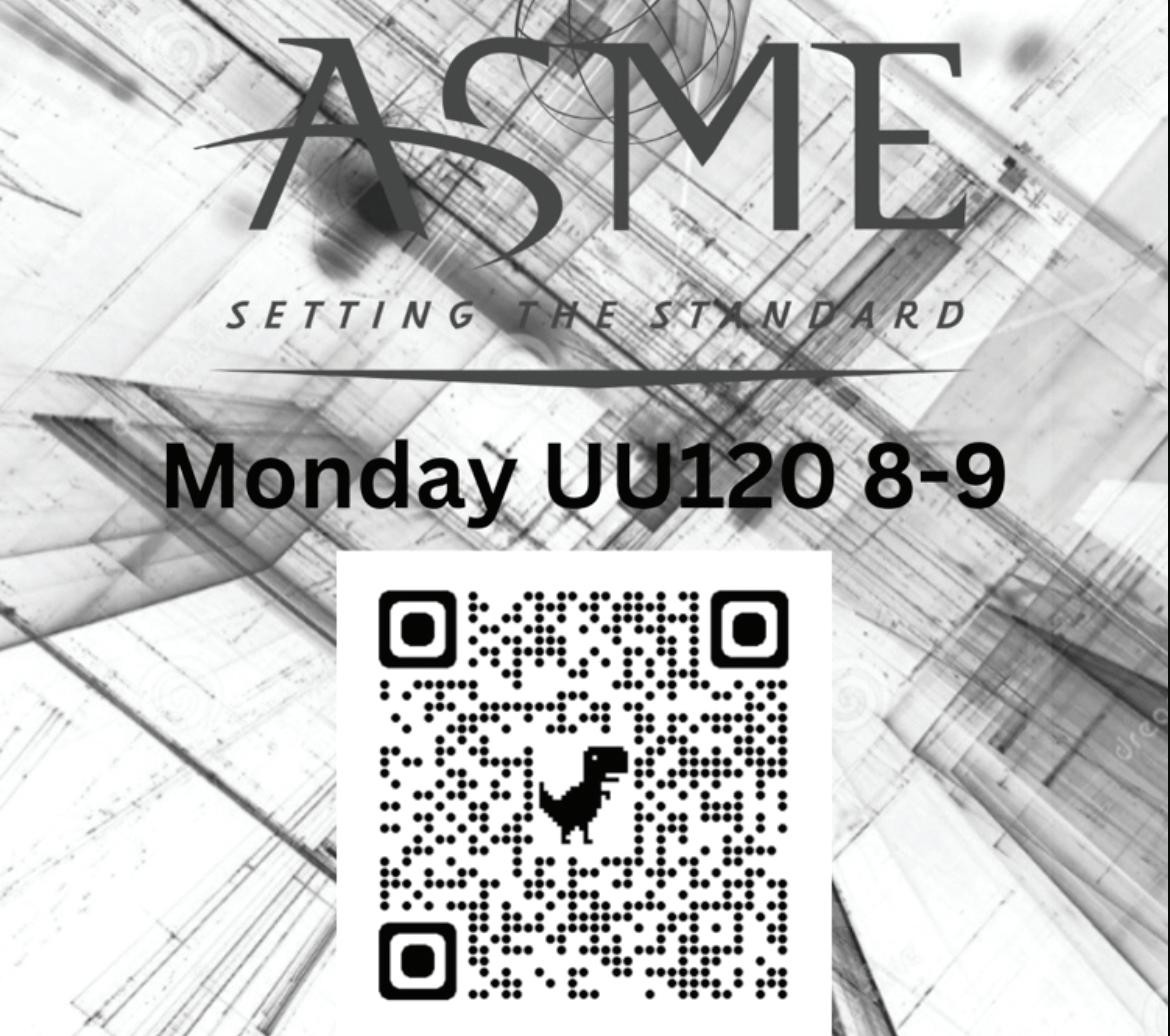
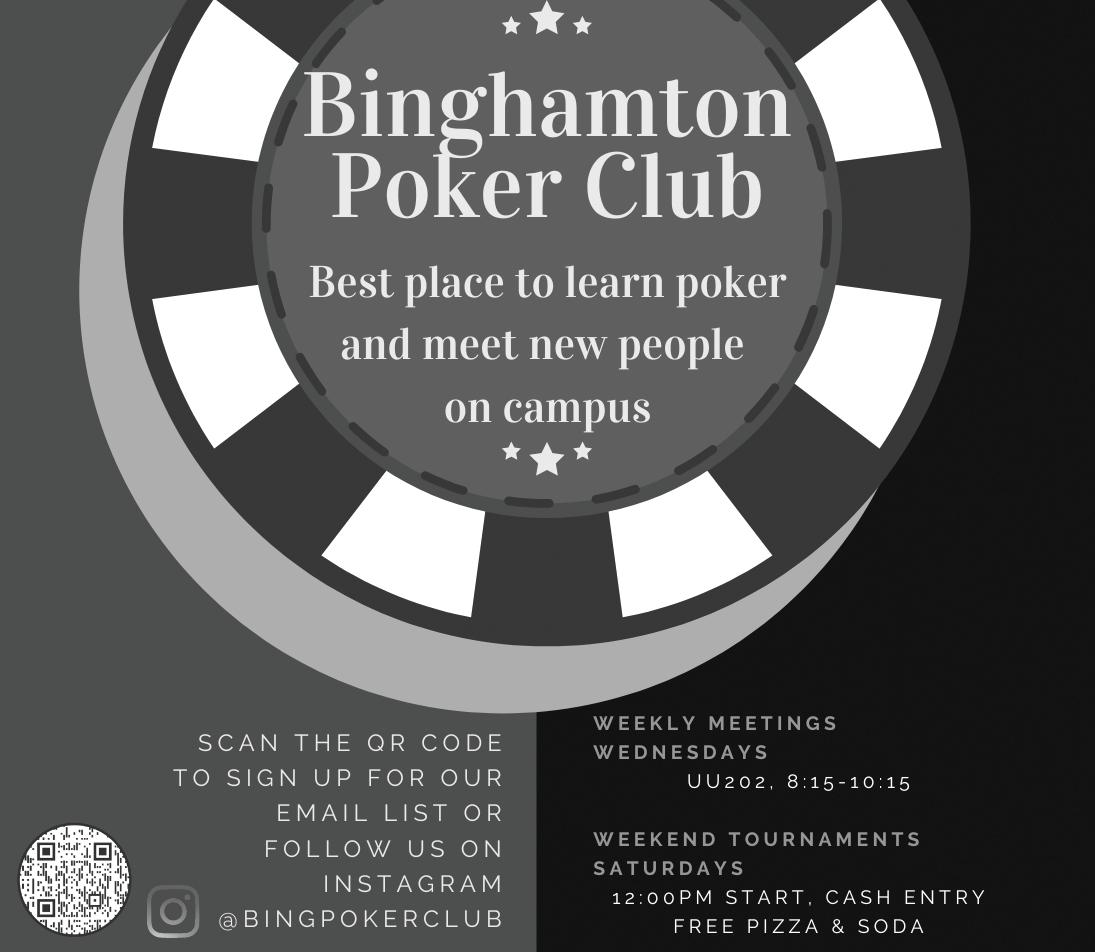
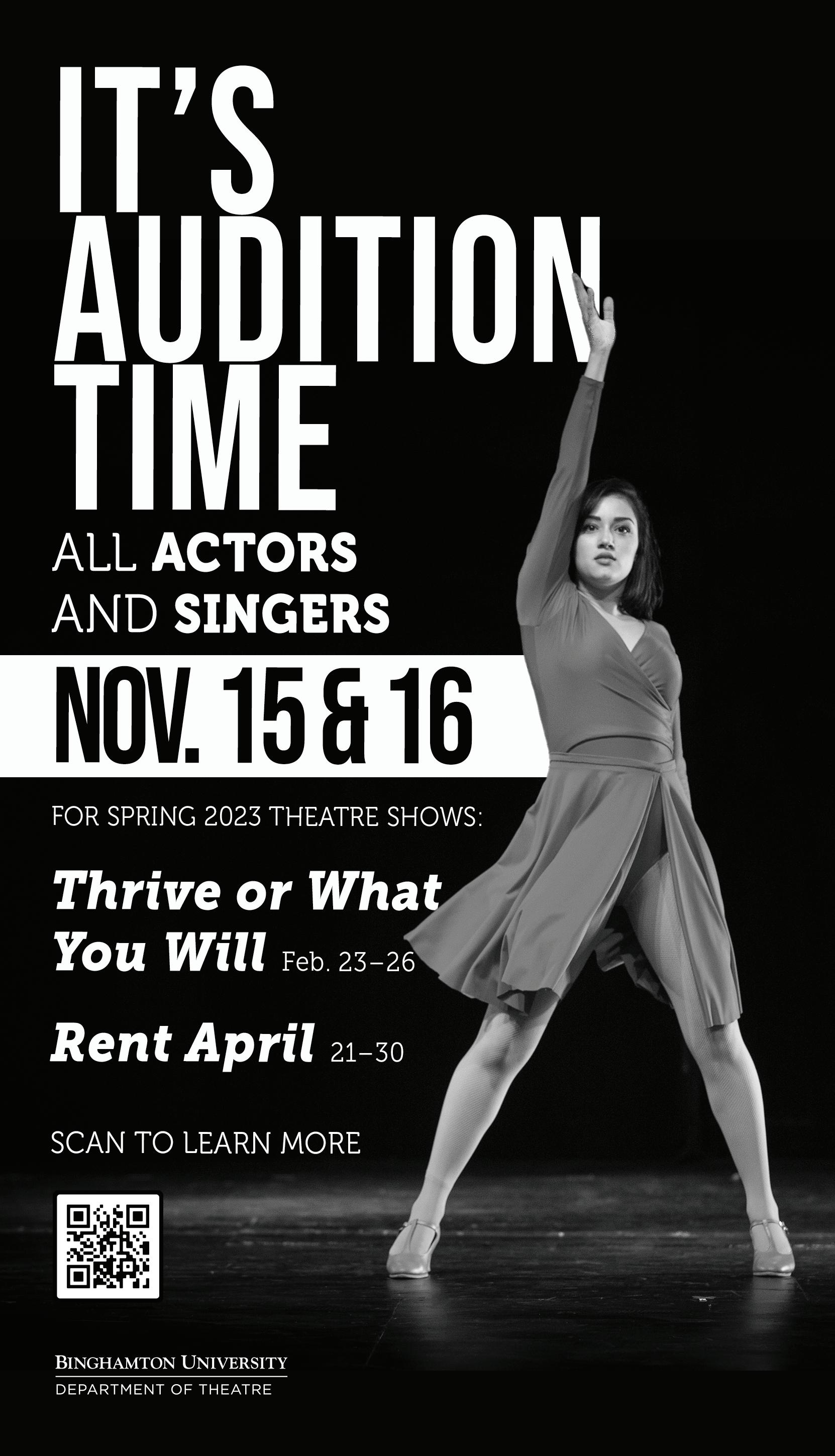
“We often say we never forget, we never forget, we never forget those who have served and sacrificed for us,” Kralik said. “I think Veterans
Day is an important time to stop and really never forget. We have the opportunity to take times like this to put on a demonstration to show those who have served that we really care.”
As the event came to an end, the attendees led the crowd in a moment of silence. The moment of silence was
followed by closing remarks from Edouard.
Edouard described how Veterans Day is an opportunity for Americans to remember and thank those who have served and sacrificed their lives in the name of freedom in the United States.


“For it’s their love and their support and their resilience
that is the backbone of this nation, and in our recognition this afternoon and your presence here and services and ceremonies all over the country, we will never forget that sacrifice,” Edouard said.
“We will never forget that responsibility. We will never ever forget our veterans.”
bupipedream.com | November 15, 2022 NEWS 4
michael golann photo editor
Stenger commemorated the sacrifices of veterans for their country, reminding attendees of BU’s connections with veterans.
The decades long tradition featured speakers and a ROTC demonstration.
Lauren MacDavid news contributor
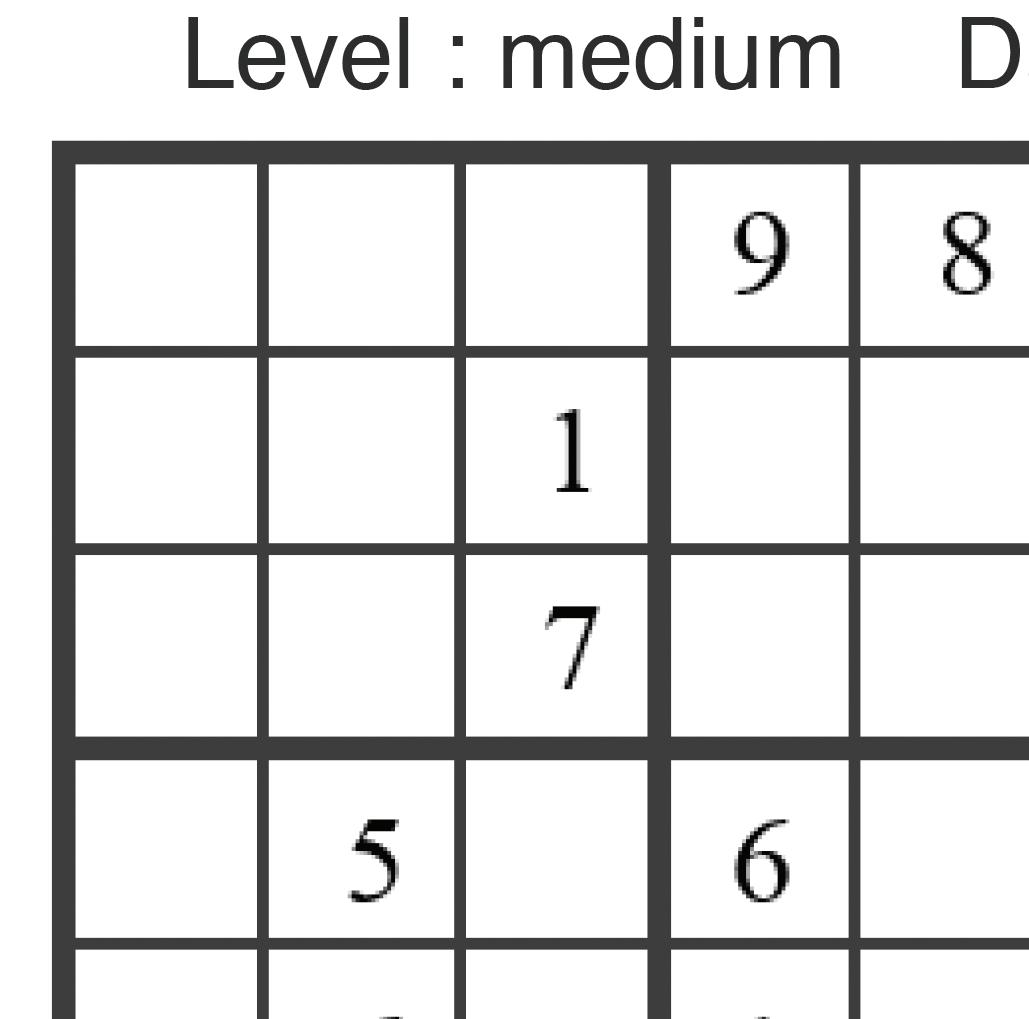



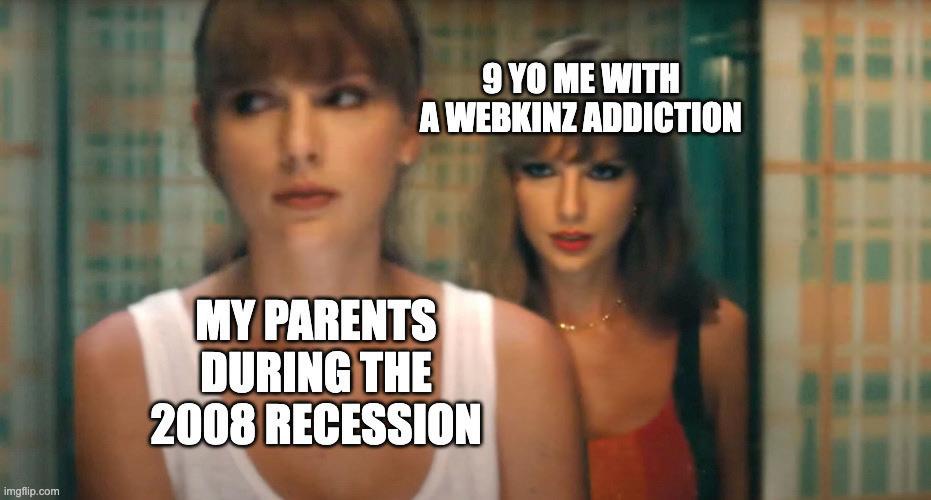









Monday, April 3, 2017 Thursday, September 28, 2017 Monday, October 2, 2017 Thursday, October 5, 2017 Tuesday, November 15, 2022
College Chills
F UN
@laney_bonora
The Kinzcash Crash @peter_isaiah_poetry
Deal or No Deal (ft Howie Mendel)
@laney_bonora Solution to last week’s puzzle
BU theatre department presents “Into The Woods”
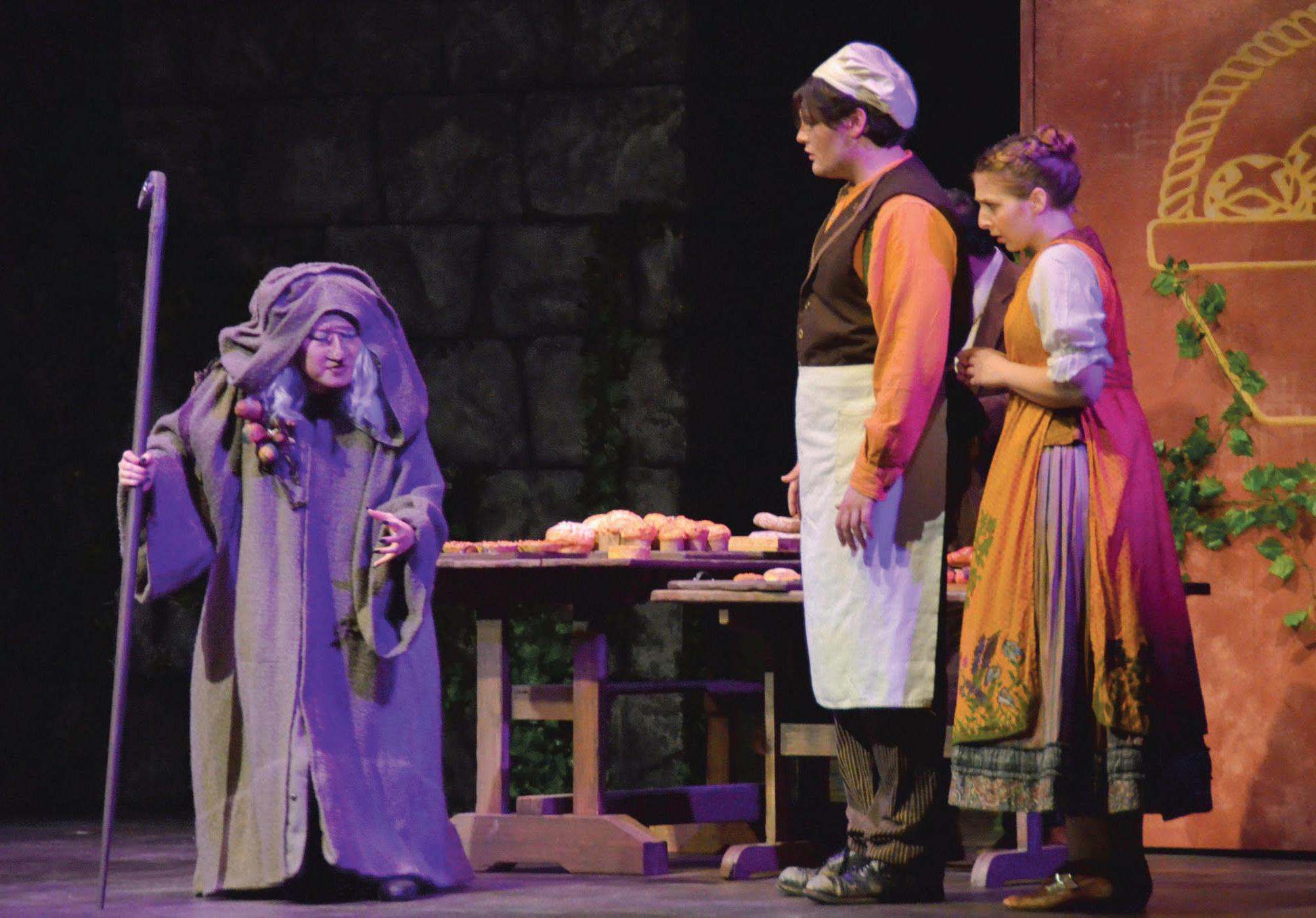
“It is rare that student designers are ready to design a mainstage musical,” Iafrate said.
Prior to staging rehearsals, Iafrate said the focus was on conducting textual, lyric and character analysis. Iafrate also said there were around two trial runs prior to adding tech.
“We of course start off by learning the music and doing a lot of text analysis and lyric analysis and character analysis,” Iafrate said. “Then we go into staging rehearsals, adding orchestra and costumes and light cues and scene changes and sound cues and everything becomes a totally different show.”
“Into The Woods” explores numerous themes, and Iafrate said it is impossible to say one theme is more important than another. Some main themes included parenting and familial themes, life’s expectations versus reality and individual responsibility versus communal responsibility. Iafrate said the themes relate to modern-day society and compare the characters’ expectations to those held by college students today.
“These characters in Act I
follow the rules and they don’t get their happily ever after in the same way that they expected to,” Iafrate said. “We as humans may think all of our problems will be solved once I graduate college or once I get a job, but of course, it’s not easy.”
With regard to individual responsibility versus communal responsibility, Iafrate said the selfish actions made by characters in Act I led to larger problems that must be faced as a community in Act II.
“In Act I, all the characters are pursuing their own personal needs and wants, and then in Act II, they have to deal with the ramifications of that selfishness,” Iafrate said. “The problems are now something that confronts the community as a whole.”
Iafrate compared the obstacles faced by the community of fairytale members to challenges faced around the world today.
“Seeing the way things change when you’re fighting for yourself versus when you’re fighting for your world,” Iafrate said. “That’s something that’s obviously really resonant today as we’re still dealing with how we as a society are or aren’t dealing with [COVID-19].”
Kaveh Akbar speaks on his works and inspirations

Akbar is an IranianAmerican poet and scholar.
Jamie H. Nguyen assistant Arts & Culture editor
“It wasn’t until Gabriel squeezed away what was empty in him that the Prophet could be filled with miracle.”
These are the words of Kaveh Akbar in his poem “The Miracle,” from the collection “Pilgrim Bell.”
Akbar, who is known for being extremely earnest and easily caught up in the literature he’s reading, visited the Binghamton University Center for Writers virtually last Thursday to read from his own works — offering a glimpse into what inspired his poetry.
Akbar is an Iranian-American poet and scholar who’s currently teaching at the University of Iowa, Warren Wilson College and the master of fine arts (MFA) programs at Randolph College — also serving as poetry editor of “The Nation.” His first poetry book, “Calling Wolf a Wolf,” catapulted him into the modern literary canon in 2017, and his newest poetry collection, “Pilgrim Bell,” continues to receive high praise.
He was introduced by Omid Ghaemmaghami, director of
Special World emphasizes community.
Miller Arts & Culture Contributor
the Middle Eastern and North Africa Studies Program (MENA), and Tina Chang, director of the creative writing department.
The first excerpt Akbar read was from “The Miracle,” drawing from a story detailing how the Quran came into existence. The poem starts by describing the angel Gabriel coming to the Prophet Muhammad and giving him the gift of literacy. As he read the piece, the words appeared to emerge rather than just being dispensed from a page. The moment it was over, Akbar shrunk back into the usual self-conscious writer’s shell and apologized for the strength of his reading. He prefaced the second poem as “by not-me people.”
“I spend a lot of time with myself and I’m a little over me,” Akbar said. “But, in the spirit of this being a ‘me’ moment, I want to shout out to the beginner of beginner, the earliest attributable author of our species is a Middle Eastern woman in current Iraq named Enheduanna, who was writing in ancient Sumerian, writing these hymns in 4300 BCE.”
Akbar praised the poem’s trot and lyricism, which sets this translation — by Jane Hirshfield — apart from other stiff and literal translations. The poem is included in the newly published
“The Penguin Book of Spiritual Verse: 110 Poets on the Divine,” of which he is the editor.
Akbar then read another poem from “Pilgrim Bell” called “My Empire,” which was published in The New Yorker. As before, he was quick to remove himself from the spotlight once the poem closed, and introduced the audience to a poetry collection called “Bad Boats” by Laura Jensen, whom he called his “private pantheon poet.” As he read the first line of “Bad Boats,” Akbar — unable to hold himself back from his professor-instincts — stopped at the first line to marvel at the use of languages. He concluded the reading with another poem also called “Pilgrim Bell,” in a series of poems with the same name.
Chang started the Q&A by reading her favorite part from her marked-up and tear-stained copy of “Pilgrims Bell.” This spawned a conversation about recognizing “members of your tribe” in literature and the human nature of asking for help, even from members that had been gone long ago.
Akbar also talked about his struggling start at building his connections, getting rejected from MFA programs and being desperately hungry to talk about poetry — which led to him creating the DiveDapper
website, which includes profiles of writers.
“If you just cold call Sharon Olds and ask to talk for an hour, she might say, ‘How’d you get this number?’” Akbar said. “But if you said, ‘Hey I’m the editor of this website you’ve never heard of,’ it’s marginally more legitimate. And that became my
education.”
The session ended with Akbar talking about the pleasure of creating, or “having written” something that only exists because of one’s own mind, and the messy stage of writing before it actually becomes recognizable.
“The Palace went through a
million different forms before I found what it is,” Akbar said. “I sent [my friend] the messy soup of that at some point. He had created these protovertebrae that became the biggest step of becoming the recognizable poem that it is. It took a defamiliarized set of eyes to recognize those protovertebrae.”
aims to destigmatize special needs. The club was founded by Danielle Preiser in Bellmore, NY, in 2009 and has grown since then, finding success at BU as well. Through volunteer work, the club celebrates differences and creates a community where everyone
is welcomed and supported, regardless of their individual needs.
Through fundraising, the organization’s overall goal is to build a group home for adults with special needs and developmental disabilities with live-in staff. One resident of
the home will be the founder’s brother, Jonathan, who has Fragile X Syndrome and inspired the organization’s founding. So far, they have raised over $40,000 that has gone to Fragile X Syndrome research, as well as around $40,000 for the group home.
Julie Pulewitz, copresident of One Special World at Binghamton and a sophomore majoring in philosophy, politics and law, has had what she described as an unbelievable experience with the club for many years. Pulewitz got involved with One Special World when looking for a way to get more involved with her community during high school.
“My high school was the only one that has the club, and BU is the only university with One Special World, so I’m really happy to continue with it through college,” Pulewitz said.
The club holds different events where students can get involved, one being a recent Halloween party with Gigi’s Playhouse Southern Tier
Similar to One Special World’s mission of destigmatizing special needs,
Gigi’s Playhouse aims to change the way people view Down syndrome, encouraging acceptance and providing free support with education and careers to individuals with Down syndrome and their families. One Special World partnered with Gigi’s Playhouse right before Halloween to have a party, creating an accepting community and forming new friendships.
Alongside Gigi’s staff and volunteers, around 15 One Special World club members ran bingo, pumpkin painting, tic-tac-toe, a photo booth, a freeze dance, a fashion show and more activities while bonding with friends and family. Lauren Wexler, treasurer of the club and a sophomore majoring in business administration, spoke about the beginning of her journey with One Special World.
“I got involved with One Special World because I was inspired by other members who spoke about the impact it made on them,” Wexler said. “All of the families were so happy for us to be there, and I loved meeting everybody!”
A new club member, Efrat Romano, a sophomore
majoring in human development, enjoyed their time at the party.
“I really loved connecting with people at Gigi’s Playhouse,” Romano said. “It was fun to watch everyone make new friends and get involved!”
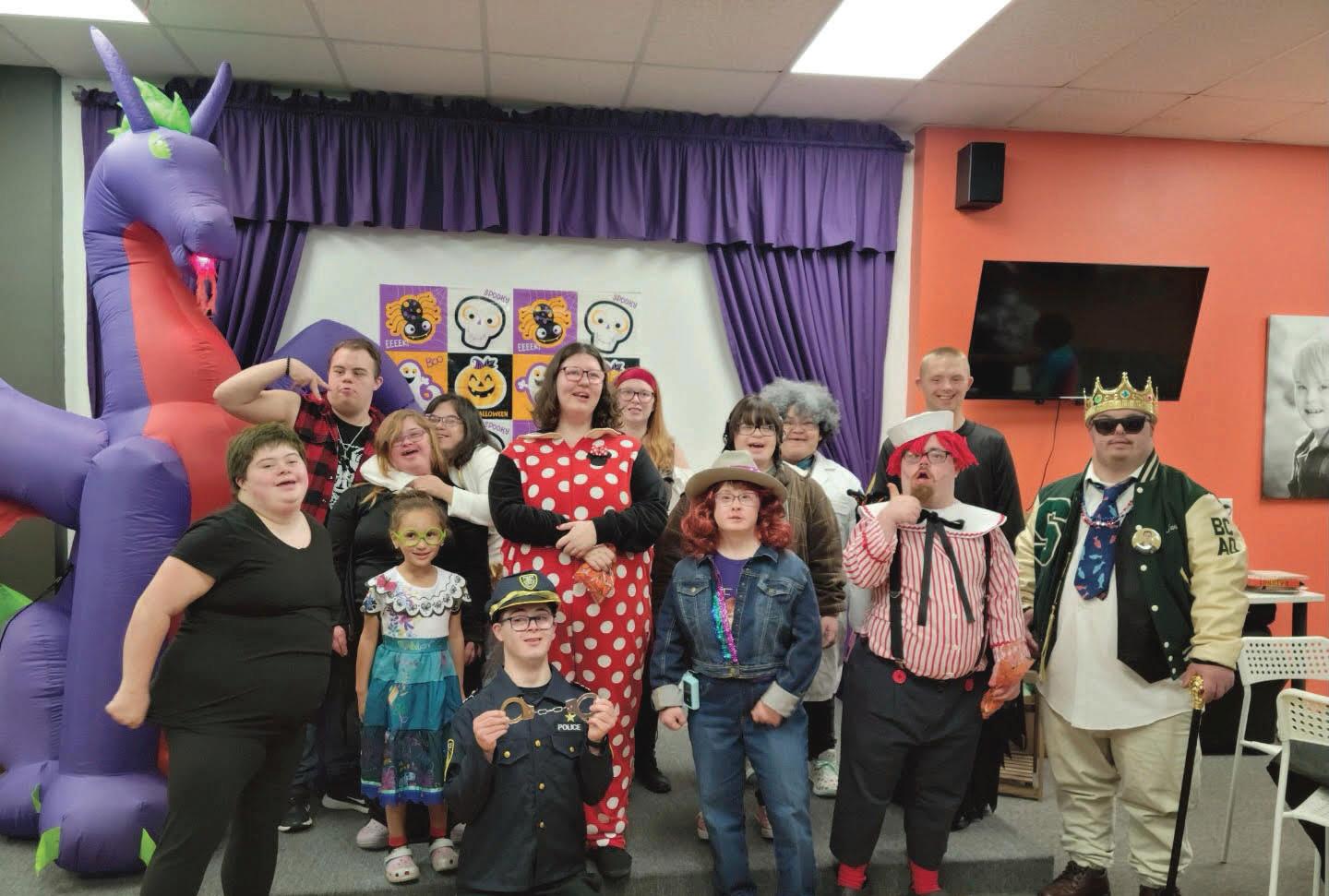
One Special World has monthly meetings on Wednesday nights where the club brainstorms fundraisers and events — like the Halloween party.
“We’re always looking for new club members and to spread awareness,” Pulewitz said.
Past events have included a hockey game and fashion shows to raise money for the group home, and the club has held educational seminars to teach members and other students about developmental disabilities and special needs.
Those interested in getting involved can contact jpulewi1@binghamton.edu. Donations can also be made to One Special World through their website, onespecialworld. org, where every donation will go directly toward building the group home.
Many at Binghamton University feel lucky to have One Special World, a club that
club
de-stigmatize special
National
aims to
needs
One
Ryan
divya gottiparthy contributing photographer
“Into The Woods” is a retelling of classic fairy tales such as “Jack and the Beanstalk,” “Rapunzel” and “Cinderella.”
sourced from author photo by hieu minh nguyen
A poet and scholar, Kaveh Akbar is the next speaker to join the the Binghamton Center For Writers’ Distinguished
sourced from julie pulewitz One Special World recently held a Halloween party with GiGi’s Playhouse Southern Tier. theatre from page 1
Writers Series.
OPINIONS
Gender performativity should be unlearned
The relationship with consumption and the gender binary must be interrogated
Julie Ha Columnist

Recently, I watched a commentary video on YouTube uploaded by Mina Le, titled “explaining the hyperfemininity aesthetic,” in which she delves into the history and expansion of Barbie-core and bimbo-core across race, ethnicity, gender, political affiliations and more. These aesthetics resonate with the spray-tanned, “dumb blonde” stereotype popularized by 2000s It-girls, such as Paris Hilton and tabloids. More importantly, though, they are defined by a collective embrace of hyperfeminine fashion, consisting of Juicy Couture sweatsuits, skimpy skirts, lingerie, exposed thongs, low-rise bottoms and lots of pink. This made me reflect on Judith Butler’s theory of gender performativity, in which she describes gender as “an identity instituted through a stylized repetition of acts,” “the stylization of the body” and social temporality. This theory builds on Simone de Beauvoir’s idea that “woman” is a historical situation, which necessitates that in order to become a woman, one must perform as such and actualize it into reality, or, in Butler’s words, “compel the body to conform to
an historical idea of ‘woman,’ to induce the body to become a cultural sign, to materialize oneself in obedience to an historically delimited possibility, and to do this as a sustained and repeated corporeal project.”
Feminists and queer people have long advocated for the destruction of the male/female binary. However, should gender be understood as fluid and should it be considered a performance, it’s worth interrogating the integrity of the cultural signs that supposedly legitimize our gender. More specifically, in the age of social media and late capitalism, performing gender through fashion — although Butler makes clear it constitutes many other behaviors — has become perversely synonymous with performing in the masculine/feminine binary as well as participating in relentless consumption. Ultimately, gender performativity needs to be unlearned in order to create a more liberatory future in line with feminist goals.
The most glaring issue with performing gender to its extreme is the risk of replicating gender in a binary frame. The ways in which we must act, talk, dress, etc. to actualize our gender under this theory are rooted in an idealized version or the expectations of said gender so that our bodies, as cultural signs, may be understood by the public.
On Beauvoir’s claim, there isn’t a clear image of “woman,” for example — and there shouldn’t be — nor are there guidelines for their attributes. One might say that becoming a woman means playing into the feminine role and, certainly, that role comes with arbitrary ideals as well as a vacuum that traverses the fluidity of gender. Nevertheless, the truth is, when we partake in performance, we merely signify the archetypes of our gender, which can hardly be claimed as true representation.
This is especially true for historically limited models. Performing a certain gender varies across cultures. It may look like adopting sexist traditions and expectations, dressing in ways that don’t adhere to your personal style or having no guidelines at all. Not to mention, people of color are sexualized and thus gendered improperly in accordance with the ways in which they are fetishized much too often for no justifiable reason.
As for bimbo-core, the archetype of a hyper-feminine woman was popularized by rich white women and therefore made into conventional standards of beauty.
While bimbo-core recently gained traction through social media apps such as TikTok, many people of diverse backgrounds are turning to this fashion to look the part and reclaim the aesthetic. To these people, “bimbofication”
— “the transformation of an understated, normal-looking woman (or man) into a surgically enhanced, spray-tanned camp icon” — means radically embracing the hyper-feminine to counter once derogatory and misogynistic connotations attached to the bimbo figure or being unapologetically “girly,” and adopting pro-sex work, progay rights and anti-capitalists beliefs.
The evolution and diversification of the bimbo figure is well-deserved. However, even in modern times, the political iconography attached to bimbo-core means little without the image, clothes, shape or performance. After all, the underlying assumption to performing gender is that it is social — that there is always an audience to ritualistically validate our bodies as such.
Physically stylizing one’s body is consistent with gender performativity theory and, while it can be radical, for the most part, necessitates consumption to participate in hyper-feminine or hyper-masculine aesthetics or performance and, thus, validates that a gender should be problematized. From rapidly expiring fashion trends to sustained gender archetypes, the reliance on feminine or masculine goods as a means to legitimize gender both wrongfully demand that gender be performed publicly
as a spectacle — as opposed to embodied privately — and minimize the identities of those who do not or cannot afford to look the part.
Thus, performing gender becomes a cultural experience not devoid of historical violence that necessitated feminist discourse surrounding gender and capitalism in the first place. Consumption, itself, is politicized — heterosexual women in the domestic sphere have historically operated within “the dichotomized relationship between Mr. Breadwinner and Mrs. Consumer,” as described in a journal article by Mary Louise Roberts of Stanford University, which is to say that to be a “good woman” in the household is to consume. One problem here is that gender identity — when performed — does not dictate what or how much one consumes — it’s the other way around. By fetishizing commodities, identity is reproduced and reified, which problematically indicates that our gender identities are not our own, they are meticulously constructed by our actions.
While the term “cultural commodity” has typically been used in the context of leisure and wealth, it’s fair to say that gender has been commodified, revealing a cultural experience as our bodies become signifiers with no end in sight. In the age of public image, gender — as a
performance and experience — can very easily fall down a slippery slope of bolstering the systems, such as capitalism, that supply and demand its performance when we ironically let gender be misrepresented while trying to affirm it in normative ways.
There’s no doubt that performing gender, particularly through fashion, can be a great means of self-expression, especially for trans and nonbinary folks. However, it may not be a sustainable way for some to both assert and explore their gender. There is, of course, a move toward de-gendering clothing as well, but simultaneously viewing gender as performative allows the production of gender identity to be reliant on consumption and the larger fact that cultural archetypes of gender still exist to go ignored, underscoring the point of gender-less clothing. If gender should be both accessible and non-mutually exclusive with furthering normative and archetypal modes of being, we should neither rely on consumption to be comfortable in our gender nor use it as a framework for approaching the gendered identities of others.
Julie Ha is a sophomore double-majoring in English and comparative literature.

Julie Ha is a sophomore double majoring in english and comparative literature.
Checkout donations foster false satisfaction
Direct involvement with organizations is more meaningful than monetary donations
Antonia Kladias Columnist
I donated my dwindling meal plan dollars purely out of pressure and fear of judgment when dining services at Binghamton University were collecting donations for a food drive. It’s not that I don’t support the cause or have anything against donating, but it made me consider if it was really the best way for people to engage with their communities.
Checkout donations create an awkward situation for employees and customers alike. Customers feel pressured to donate their extra cents while employees try their best not to make customers
English
feel uncomfortable or judged. From both sides, this is not a situation anyone enjoys being in, so why do businesses continue this practice? These donations are far from the best form of charity to exist, but they are actually very effective in raising money. These donations also help businesses improve their reputation and earn money because customers feel good about spending money at their stores. A common misconception I often hear is that these donations are used as tax write-offs, but this is actually not true. Companies cannot write off donations that do not come from their own income. But, despite their effectiveness, there might still be more harm than good produced in the long run.
Making monetary donations
through businesses make people feel like they are doing something charitable and meeting their “moral quota” when they could do much more. While it is true that these types of donations are accessible and do encourage people who wouldn’t donate otherwise to donate, this alone should not fill people’s quota for good-doing. Directly working with charities and volunteering your time has a far greater impact than the spare change you donate at the register.
Donating money through businesses also doesn’t provide people with the same connection to organizations that directly donating or volunteering does.
Building a lasting relationship with specific organizations makes the greatest impact on charity organizations because
people will return to volunteer their time or continue to make donations. Checkout donations take this possibility away because most of the time people don’t even know where their money is going or the programs it might be supporting.
I work at Panera Bread in my hometown, and when we were doing a “round up” donation campaign, I honestly did not know anything about the organization we were raising money for. The info sheets we were given were vague and unhelpful. When a few customers asked me about it, I had to tell them something generic about education in lowincome communities. Even as an employee, I wanted to better understand the programs this money was funding and was embarrassed I couldn’t give
customers more information. Knowing where the money is going, even if it is only a few cents, makes a big difference in the long run. If you know where your money is going, you’re more likely to research an issue or organization and that larger understanding causes people to get more involved and work for change. This is why business-led donations are not sustainable forms of charity.
The impulsivity and peer pressure behind these donations contribute to their qualitative effectiveness, but subsequently take away from the sentiment and meaning of charity. Doing good makes people feel good, but these small donations at the cash register give people a false sense of that. People who actively volunteer their time
or regularly donate to charity would not feel satisfied with these donations alone. People who use these donations as their only form of charity shouldn’t feel satisfied either. These donations are disconnected from the actual organizations, and do not give people any real insight or experience with what they are supporting. The most rewarding part of charity is seeing the effects of what you contribute, and with these kinds of donations, you rarely get to see them. So, next time you’re asked to “round up” at the register, don’t feel bad about saying no. Instead, find a charity or organization that means something to you and volunteer your time there.

readings
Lily Tener Columnist
Let’s face it, many middle and high school students do not complete assigned readings for English classes. Instead, they turn to websites such as SparkNotes, which summarizes books for them. A big reason as to why many students are disengaged in English classes is the way these classes are often structured, leaving very little room for exploration and creativity. While it is clearly important to challenge students in their classes, doing so while they are uninterested and unmotivated does little to actually educate them. Changing the class structure to give students more freedom to choose and explore books for themselves will allow them to become more involved and engaged in their English classes.
Over the years, the amount of students that read for fun has plummeted. A study from
the American Psychological Association found that, in the late 1970s, “60 percent of high school seniors read from a book or magazine every day … but by 2016, the number had plummeted to 16 percent.” This may be due to students’ dislike of their English classes, as this is where they get the majority of their exposure to prominent novels and other literature.
Another study’s literature concludes that “research indicates that there is a definite theme of student dissatisfaction or concern about the texts they are required or ‘forced’ to read in the classroom,” and that this dissatisfaction is connected to the decline in reading.” English classes are often structured in a way such that students are assigned readings — usually classics. Then, students are forced to overanalyze every detail, sit through classroom discussions they barely participate in and write a report about a book they were likely disinterested in. Associating these experiences with reading can make a student believe they
dislike reading, when, in reality, they have just not been exposed to a type of book they enjoy.
There is so much potential to teach students about books in a way they enjoy that will lead them to become lifelong readers.
A Live Science survey about boredom among students found that “when asked, the most common explanation of why a student doesn’t like English is the desire to pick how they do their work and what their work is about.” A simple shift to fulfill students’ personal desires could transform the dull classroom discussions dominated by teachers into lively, engaging conversations between students.
When a person enjoys a book, it can be fun to talk about it with others. If teachers are having to force students to talk in discussions, they are probably selecting the wrong books.
By giving students a choice, assignments will feel less like work and more enjoyable.
Studies have found that allowing students to choose their own reading materials increases positive feelings about reading.
Not only can giving students a choice of books make them more engaged in class, but it can also encourage them to read on their own time.
This does not mean that the entire current curriculum must be discarded. It just needs adjustment. There are certain aspects of common English curriculum that are important, such as books that challenge readers and improve comprehension, analysis and deeper thinking skills. While classics are typically used for this, other books can do it just as well. Additionally, not every book needs to be extremely challenging. It is just as important to allow students to explore interest in books as it is for them to learn language from them. Exposure to certain themes, ideas and issues is another big reason why classics are used in class. However, nonclassics can give this exposure while being more interesting and relevant to students. As Ava Bourdeau, an opinion editor at The Samohi writes, “works such as ‘The Hunger Games’
may not have the most advanced diction, [but] they have turned many young people into avid bookworms, while also dealing with issues of conformity, leadership and identity.” Classics don’t have to be entirely replaced and can, instead, be read in addition to books of students’ choice.
In order to successfully restructure how English classes are taught, there must be a balance between giving students freedom to explore books and improving their comprehension and deeper thinking skills.
Setting parameters on book choices and offering a diverse selection should help with this.
Based on age and reading skill, students can choose books with a certain degree of difficulty. To make sure there is a diversity of books, they can be separated into different units based on genre, time period and more.
When classics are assigned, even giving students a choice between a few classics may be more motivating. Melanie Hundley, a former English teacher and current professor at Vanderbilt
University says, “’If kids will read and you can build their reading stamina, they can get to a place where they’re reading complex text.’” Having a larger and more diverse range of literature would be beneficial for the students and teachers, who would no longer have to try so hard to get the class engaged.
Changing how English classes are taught is one of the most important things in getting students interested in reading. The current system implemented clearly is not working, since assigned reading is very unmotivating for students to read and be interested in. By giving students the freedom to choose and explore a more diverse collection of novels, they are more likely to be engaged in class, transforming the environment they are learning in. Hopefully, this will also lead to students developing a lifelong love of reading.
– Antonia Kladias is an undeclared freshman.
Monday, April 3, 2017 Thursday, September 28, 2017 Monday, October 2, 2017 Thursday, October 5, 2017 April
Tuesday, November 15, 2022
Lily Tener is a sophomore majoring in integrative neuroscience.
Giving students a choice in assigned reading can
learning, participation
classes should let students choose
foster
Men’s soccer drops AE semifinals matchup at UNH
Binghamton ends furthest postseason performance since 2015.
Jack Oh Sports editor
Following a quarterfinal victory over UMBC last week, the Binghamton men’s soccer team traveled to UNH to compete in an America East (AE) semifinal match for the first time since 2015. In 90 minutes of play, the Bearcats were unable to get any shots on goal, ending their season with a 3-0 loss to the No. 22 Wildcats.

“I feel a little disappointed in our performance tonight,” said Binghamton head coach Paul Marco. “It wasn’t typical of how we have been playing. Give UNH some credit, they’re a great team. They’re very difficult [to play] at home. They were up for the match and we kind of weren’t ready for the moment.”
The first half started with immediate action as UNH (14-4-0, 6-1-0 AE) found the back of BU’s (6-9-4, 3-2-2 AE) net less than two minutes into the game. Despite the early goal, neither side scored for the remainder of the half. The Wildcats were constant in their attack, peppering the Bearcats’ goal eight times, four of those shots being on net. However, senior goalkeeper Mats Roorda remained resilient in goal, tallying three saves in the half.
“I think we were very nervous to start the game off,” Marco said. “We
let [UNH] intimidate us a little bit, which was disappointing. To leak a goal a minute and 50 seconds into the game is difficult. I felt after the first goal, the game settled a little bit [and] we started to do better.”
Binghamton struggled to find opportunities on the offensive side in the first 45. The visitors managed only three shots, with zero being on goal. At the end of the first half, the Bearcats began to get more consistency on their possessions. They got three corner kicks in a row with five minutes to play in the frame, applying pressure on the UNH defense going into the break, though none were converted.
“Once we started to move the ball around and bring the fullbacks into the game, our wide backs had a little more time and space,” Marco said. “I felt like [the strikers] were trying to get on the ball. It wasn’t like the strikers weren’t trying to play.”
The second half started out slow for both sides, but just over 10 minutes in, UNH played a through ball in behind the Binghamton defense, giving a Wildcat attacker a one-on-one opportunity against Roorda. The goalkeeper was forced to come off of his line, successfully blocking the attempt and preventing UNH from doubling their lead.
“[Roorda] did make a really good save,” Marco said. “But again, we conceded three goals, so it’s hard to say … It’s just tough.”
In the 59th minute, on a UNH corner kick, the ball was crossed into the middle of the box — where
a Wildcat was able to get their head on it and find the bottom left corner. With 30 minutes to play, BU made several attempts to stage a comeback. Despite the Bearcats’ best efforts, UNH went on to score the game-sealing goal in the 72nd minute to go up 3-0.
When the final whistle blew, the Bearcats were on the wrong end of a 3-0 scoreboard. Roorda ended the game with five saves. However, Binghamton was unable to produce on the other side of the field. It fired only seven shots for the game and none were on goal.
“[The first goal] probably sums up the game,” Marco said. “[UNH] wanted to compete and have contact and make contact and really try to dominate individual battles. Some of our guys just weren’t up for individual battles tonight, and that’s probably the disappointing piece because the guys have grown so much the past month.”
The Bearcats started this year with an eight-game winless streak, not earning a victory until the end of September against Hartford. After that win, BU closed out its regular season with a 4-2-2 record to secure a spot in the AE tournament. Once in the postseason, the Bearcats were able to knock off fourthseeded UMBC in an overtime thriller, securing themselves an AE semifinals appearance for the first time since 2015.
“We showed good growth,” Marco said. “Individual players as well as collective team performances, and we kind of figured out October. We wanted to
get better in October and I felt like we were better.”
As the season concludes, the focus will shift to next season. With nine seniors and one graduate student, the roster is bound to see
some significant changes during the offseason. However, Marco is hopeful that the team will raise the bar and show maturity next year.
“Going into next season, the bar has to be raised in several areas,”
Volleyball sweeps Bryant in final game of season
In the first set, BU (17-7, 8-2 AE) got off to a hot start, going up 9-4, however, the Bulldogs (1911, 6-4 AE) followed this up with a 7-0 run, taking an 11-9 lead and forcing the Bearcats to burn their first timeout. Later in the set, Bryant built on its momentum, going up 20-15. As the home team held control of set one, Binghamton staged a response and finished the set on a 10-1 run, winning the frame 25-21 and taking a 1-0 lead on the match.
“They stayed focused, and they never lost track of our focus,” Yaeger said. “The girls just kept fighting, and they were focused the whole entire match, and they
just executed really well.”
In the second set, both teams went back and forth in their scoring, exchanging points for the majority of the frame.
Although Bryant controlled the set early, going up 12-8, the Bearcats kept the score close, never trailing by more than four in the set. BU soon rebounded with a 4-0 run followed by backand-forth serves, and found itself trailing 18-17. The Bearcats once again turned up the heat with a 5-0 run that gave them the inside track of taking the second set.
Coming out of a timeout, the Bulldogs took two straight points, cutting the deficit to two at 2220. Despite this, BU maintained control, scoring three straight
points and ending the frame at 25-20 thanks to two blocks.
“We blocked so well,” Yaeger said. “Every time we needed a point or we needed a side out, I felt like our block was there …
Our defense really came through tonight. I would say our blocking and our defense was one of the reasons we were able to [win] in three.”
BU began the final set scoring in a flurry, building on the momentum from the set prior. The Bearcats took an early 10-3 lead over the Bulldogs.
Despite Bryant following this with a 6-0 run, the visitors never relinquished their advantage.
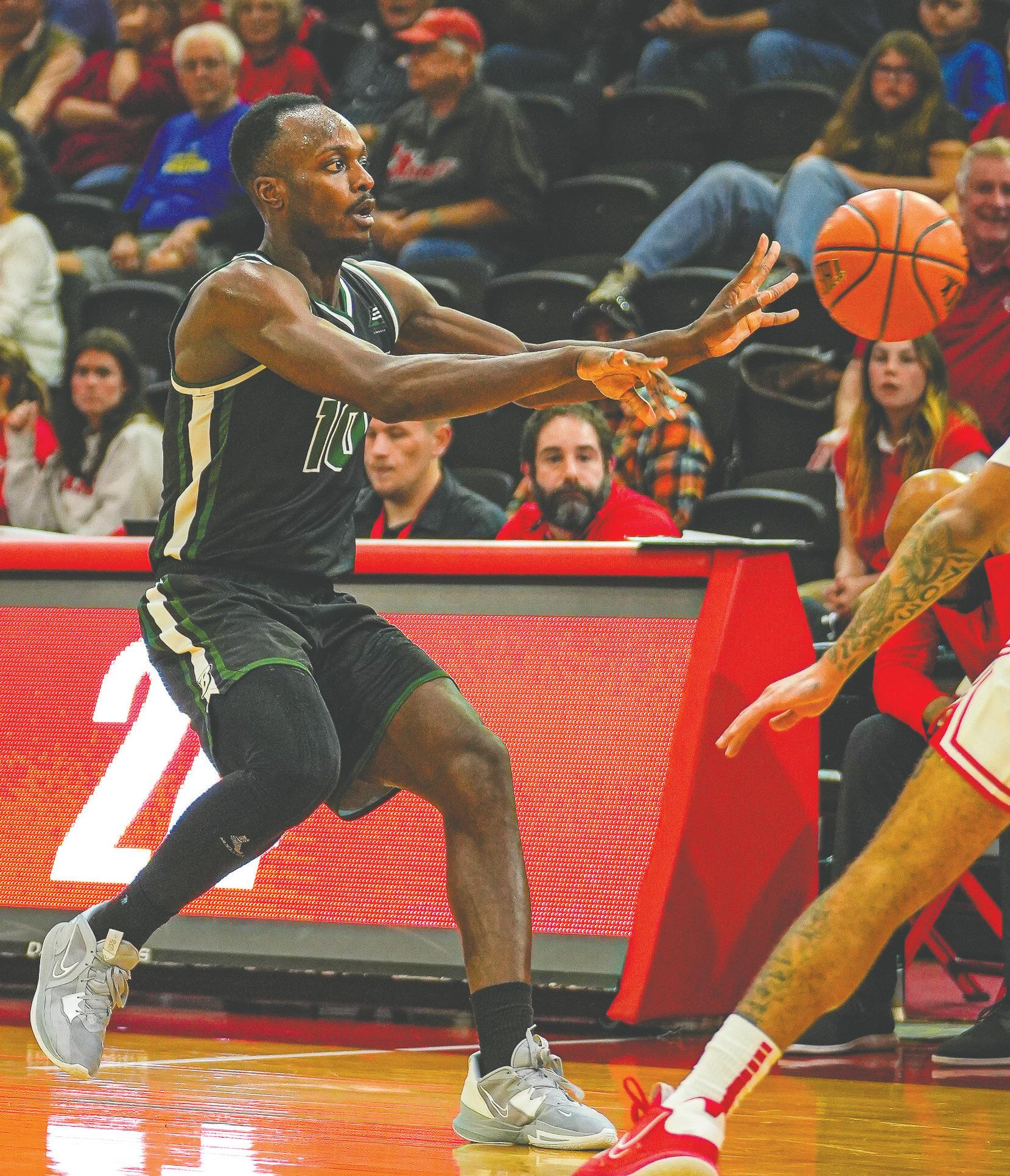
With the lead at just one point, the Bearcats contained Bryant’s
efforts with a 9-4 run that kept the Bulldogs at bay. The home side peppered the scoreboard the rest of the way, but never scored back-to-back points, allowing the Bearcats to eventually take the frame 25-17, completing the 3-0 sweep. The victory secured Binghamton’s season series against Bryant as well as home court advantage for the AE tournament next weekend.
“I’m very happy we were able to do it in three,” Yaeger said. “We knew we had a lot on the line and it was a historic day for our program. Being able to take home a regular season championship, it was such a big deal, and the girls knew it was a big deal and they knew they had to execute right
from the beginning, so we’re excited about it … Early on we really struggled with the servingpass game, but I’d say halfway through the second set we really turned it around took over after that.”
In the previous four seasons, BU combined for a 7-35 conference record — with the lowlight coming in 2019, with a 0-23 record throughout the entire year. This season alone, in a turnaround from last year’s 3-9 AE record, BU has registered eight conference wins, its best since 2017 and first regular season title.
Freshman outside hitter Giulia Bonifacio led the way on offense with 13 kills. Junior outside hitter Stefana Stan and junior outside
hitter Tsvetelina Ilieva were not far behind her, amassing 12 and 10 kills, respectively. Additionally, the Bearcats tallied 13 blocks and and 43 digs.
“We’ve been playing really well as a team recently,” Yaeger said.
“I’d say we’re peaking right at the perfect time, this is the best ball that we’ve played and we’re really playing well at home. So I just hope and pray that we can keep it together and give it our final go next weekend.”
The next time Binghamton will see the court will be in the 2022 AE tournament, where they look to win their first AE title since 2012. First serve against UNH is set for Saturday, Nov. 19 at West Gym in Vestal, NY.
Men’s basketball outlasts Marist on the road
scorer.”
a win,” Sanders said. “We wanted to definitely put some pressure on [Marist], not give their shooters the ability to get open shots. In their first game, they were 11-for-21 from three, so we really wanted to take away that.”
On Saturday, the Binghamton men’s basketball team continued its winning start to the season, going on the road to play Marist in the second game of the 2022-23 campaign. The matchup was close throughout both halves, but the Bearcats found themselves on top with productive offensive play in crucial moments, seeing out a tight 78-75 victory.
“I think what [winning] does is give us confidence,” said Binghamton head coach Levell Sanders. “It’s hard to win games at this level, especially our team. We’re trying to build a winning culture here. So the more games you can win, even if you don’t play great, when you win those games there’s a lot of things you can learn.”
BU (2-0) and Marist (1-1) both came into this game off the back of season-opening wins, with the Red Foxes’ initial result being much tighter than the traveling team’s 87-56 rout against Cazenovia. A similar offensive output from Binghamton was replicated despite the closer score, with nine of its 10 players getting on the scoreboard. Three Bearcats put up double-digit efforts. In addition, BU shot 48.2 percent from the field, also nailing seven of its 16 three-point attempts in the game.
“I thought we came out and did the things we needed to do to get
The first half, even in its initial moments, set the tone for the game in its entirety, as neither team had more than a three-point lead in the first 14 minutes. Three-pointers from junior guard Armon Harried and senior guard Jacob Falko kept the Bearcats in the game early on, but several scoring runs from the Red Foxes kept it close. Twelve minutes into the first period, junior forward Tariq Balogun tied the game at 20 with a dunk off of a loose ball, sparking a 9-2 scoring run from BU. Marist kept it close with free throws down the stretch, but a pair of layups from sophomore guard Matt Solomon and Falko in the waning minutes gave the Bearcats a 37-30 lead heading into the break.
“We have a bunch of guys on our team that can score,” Sanders said. “I was just trying to emphasize to our guys about playing the right way, sharing the ball, moving the ball. I thought early on we held the ball a little too much, and we were focusing too much on trying to beat one guy instead of moving the ball around the perimeter to create some opportunities, but I thought we did a better job in the second half. But I think our team is going to be so different this year because there’s going to be so many different guys from game to game who are going to be our leading
After Binghamton’s run at the end of the first half, Marist was forced to respond. An 8-1 outburst for the Red Foxes out of the halftime gates tied the game up at 38. Their momentum was short-lived, however, as graduate student forward Miles Gibson responded with a pair of jumpers that sparked a 22-9 run. Falko and Gibson accounted for the bulk of the run’s scoring, combining for 17 of BU’s 23 points. The Red Foxes clawed their way back into the thick of it, staging a run that brought them within five points of the Bearcats. However, their late comeback was quelled by senior guard Dan Petcash’s jumper in the dying minutes, along with several free throws that guided BU to its eventual three-point victory.
Falko and Gibson led Binghamton in scoring with 19 points each, as Petcash followed behind with 11 in his first game of the year. Although Falko and Gibson combined for 38 points, the pairs’ offensive output shined in the second half, where they scored a combined 26 points.
“What [Falko and Gibson] brought to the table yesterday, we needed that,” Sanders said. “[Falko] created for himself and he created for others. I thought he did a really good job running at point guard, and [Gibson] at one point just took over the game offensively for us.”
BU will continue its road trip when it travels to Maryland on Tuesday, Nov. 15. Tipoff is set for 7 p.m. at the XFinity Center in College Park, Maryland.
Tuesday, November 15, 2022 STREAM ON SPOTIFY Pipe Dream Bearcast
Marco said. “We talked about those, and hopefully the guys will take some personal responsibility and really show some maturity in those areas.”
mason brody-lewis assisstant photo editor
Senior goalkeeper Mats Roorda managed five saves as BU ended its season with a 3-0 loss against UNH in the AE tournament semifinals.
mason brody-lewis assisstant photo editor
Graduate student forward Miles Gibson registered 19 points in Binghamton’s second victory of the season over Marist on Saturday.
volleyball
page
from
1
Bearcats beat Red Foxes for first time since 2009.
Aidan Jennings sports intern
 Hallie Milligan news intern
Hallie Milligan news intern
















































